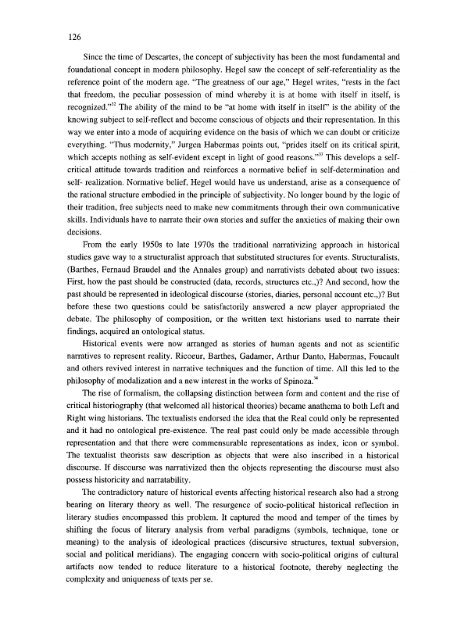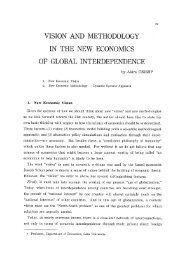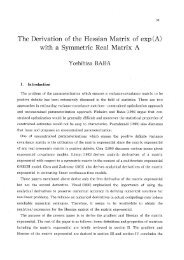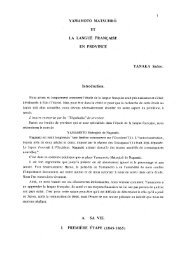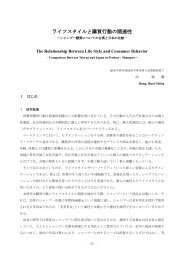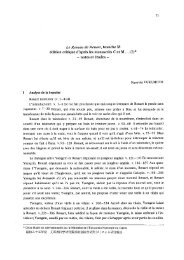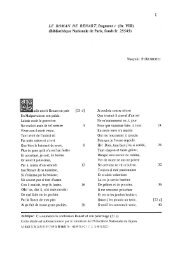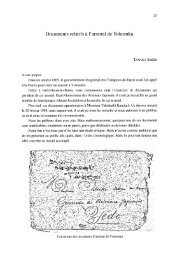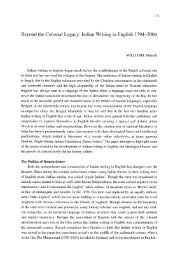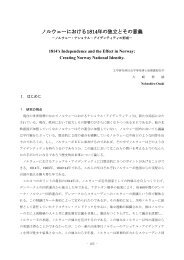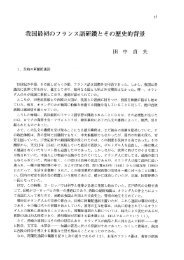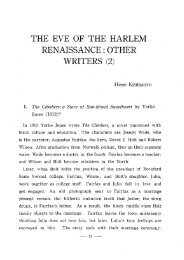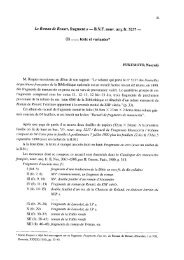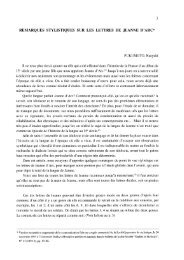New Historicism and Literary Studies - Soka University Repository
New Historicism and Literary Studies - Soka University Repository
New Historicism and Literary Studies - Soka University Repository
You also want an ePaper? Increase the reach of your titles
YUMPU automatically turns print PDFs into web optimized ePapers that Google loves.
126<br />
Since the time of Descartes, the concept of subjectivity has been the most fundamental <strong>and</strong><br />
foundational concept in modern philosophy. Hegel saw the concept of self-referentiality as the<br />
reference point of the modern age. "The greatness of our age," Hegel writes, "rests in the fact<br />
that freedom, the peculiar possession of mind whereby it is at home with itself in itself, is<br />
recognized."32 The ability of the mind to be "at home with itself in itself' is the ability of the<br />
knowing subject to self-reflect <strong>and</strong> become conscious of objects <strong>and</strong> their representation. In this<br />
way we enter into a mode of acquiring evidence on the basis of which we can doubt or criticize<br />
everything. "Thus modernity," Jurgen Habermas points out, "prides itself on its critical spirit,<br />
which accepts nothing as self-evident except in light of good reasons."33 This develops a self-<br />
critical attitude towards tradition <strong>and</strong> reinforces a normative belief in self-determination <strong>and</strong><br />
self- realization. Normative belief, Hegel would have us underst<strong>and</strong>, arise as a consequence of<br />
the rational structure embodied in the principle of subjectivity. No longer bound by the logic of<br />
their tradition, free subjects need to make new commitments through their own communicative<br />
skills. Individuals have to narrate their own stories <strong>and</strong> suffer the anxieties of making their own<br />
decisions.<br />
From the early 1950s to late 1970s the traditional narrativizing approach in historical<br />
studies gave way to a structuralist approach that substituted structures for events. Structuralists,<br />
(Barthes, Fernaud Braudel <strong>and</strong> the Annales group) <strong>and</strong> narrativists debated about two issues:<br />
First, how the past should be constructed (data, records, structures etc.,)? And second, how the<br />
past should be represented in ideological discourse (stories, diaries, personal account etc.,)? But<br />
before these two questions could be satisfactorily answered a new player appropriated the<br />
debate. The philosophy of composition, or the written text historians used to narrate their<br />
findings, acquired an ontological status.<br />
Historical events were now arranged as stories of human agents <strong>and</strong> not as scientific<br />
narratives to represent reality. Ricoeur, Barthes, Gadamer, Arthur Danto, Habermas, Foucault<br />
<strong>and</strong> others revived interest in narrative techniques <strong>and</strong> the function of time. All this led to the<br />
philosophy of modalization <strong>and</strong> a new interest in the works of Spinoza.34<br />
The rise of formalism, the collapsing distinction between form <strong>and</strong> content <strong>and</strong> the rise of<br />
critical historiography (that welcomed all historical theories) became anathema to both Left <strong>and</strong><br />
Right wing historians. The textualists endorsed the idea that the Real could only be represented<br />
<strong>and</strong> it had no ontological pre-existence. The real past could only be made accessible through<br />
representation <strong>and</strong> that there were commensurable representations as index, icon or symbol.<br />
The textualist theorists saw description as objects that were also inscribed in a historical<br />
discourse. If discourse was narrativized then the objects representing the discourse must also<br />
possess historicity <strong>and</strong> narratability.<br />
The contradictory nature of historical events affecting historical research also had a strong<br />
bearing on literary theory as well. The resurgence of socio-political historical reflection in<br />
literary studies encompassed this problem. It captured the mood <strong>and</strong> temper of the times by<br />
shifting the focus of literary analysis from verbal paradigms (symbols, technique, tone or<br />
meaning) to the analysis of ideological practices (discursive structures, textual subversion,<br />
social <strong>and</strong> political meridians). The engaging concern with socio-political origins of cultural<br />
artifacts now tended to reduce literature to a historical footnote, thereby neglecting the<br />
complexity <strong>and</strong> uniqueness of texts per se.


